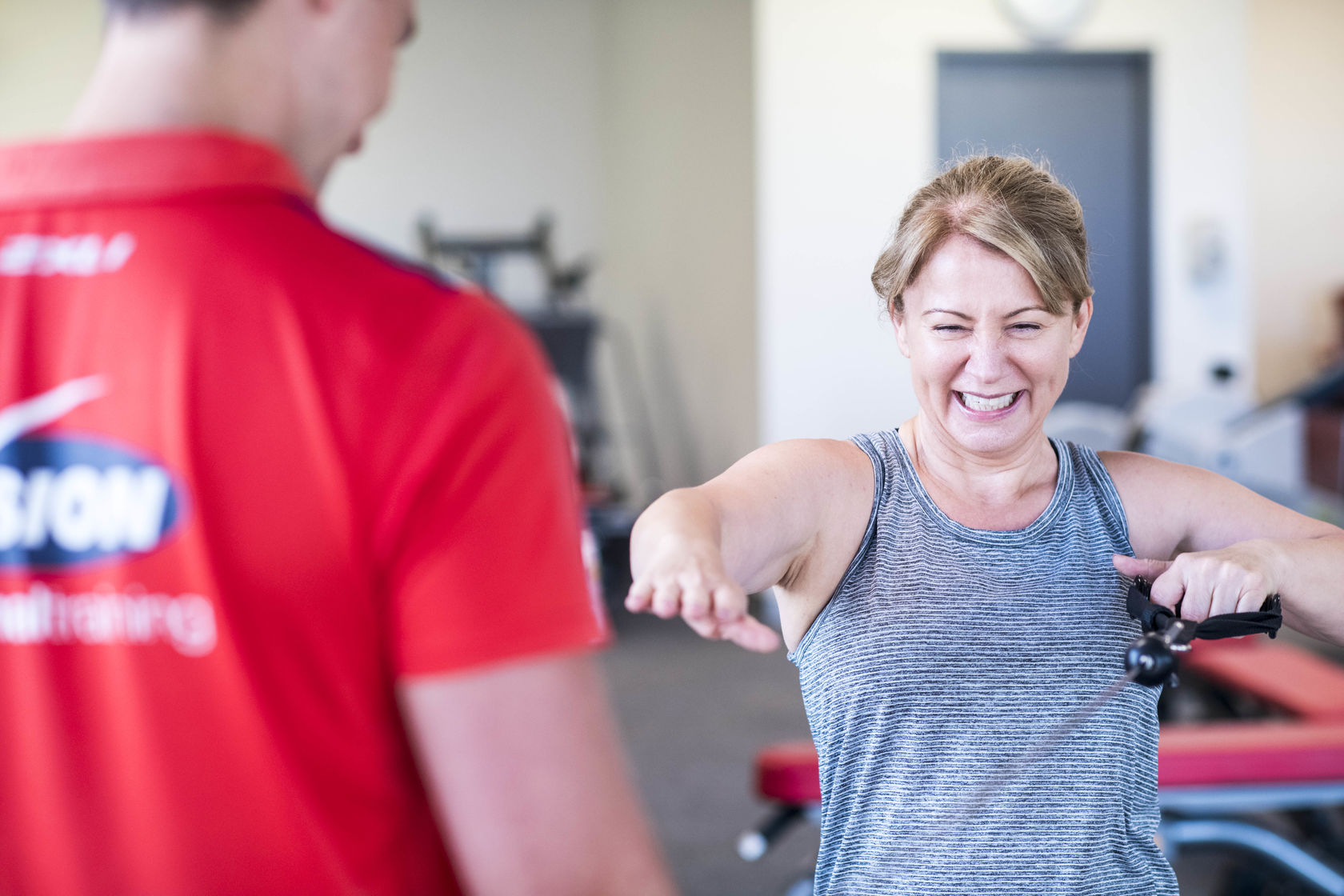How do we build muscle?
When we challenge the muscles within our bodies to deal with higher levels of resistance and weights, we cause a damage response which then needs to be repaired again. This process is known as muscle hypertrophy.
Muscle hypertrophy occurs when the body repairs damaged fibres by fusing them, which increases the mass and size of the muscles.
Certain hormones, including testosterone human growth hormone, and insulin growth factor, also play a role in muscle growth and repair
These hormones work by:
- improving how the body processes proteins
- inhibiting the breakdown of protein
- activating satellite cells, which are a type of stem cell that plays a role in muscle development
- stimulating anabolic hormones, which promote muscle growth and protein synthesis
- enhancing tissue growth
Strength and resistance training can help the body:
- release growth hormone from the pituitary gland
- stimulate testosterone release
- improve the sensitivity of the muscles to testosterone
Every person will build muscle at a different rate, this is determined by gender, age, and genetics however muscle building increases when exercise is.
- Regular
- Difficult
- Long-term
It can take weeks and months for changes to become visible so do not be discouraged early on, these changes are not going to happen overnight.
Best results are achieved when enough rest is allowed between training sessions for the body to recover with muscle taking anywhere between 24-72 hours to recover
Women can typically handle more frequency and more volume, do more body parts, more often than men. This is because females do not create as much neurological stress to the muscle so they can train it more often than males.
If you are not getting enough rest, relaxation and adequate sleep this will inhibit your ability to recover effectively slowing your progress and also increasing your risk of injury so stretching, and minimising stress is important to maximise your growth potential.
How often should you change up your sets/repetition scheme?
To continue to make progress ideally you want to be switching up your sets and repetitions every 4-6 weeks and varying the type of stimulus you are training also.
Stimulus can be focused on hypertrophy, strength, or metabolic stimulus as well.
The aim of hypertrophy is not to put it under too much stress, the idea would be to put it under the least amount of stress to illicit a response within the muscle for it to grow so there's a fine balance here between the two to find the sweet spot for the most growth potential.
Pay attention to it, pay attention to your body and the responses you get from it during your training as well as your progress as a measure.
Nutrition for building muscle
The lower you keep your body fat the better for building muscle because we want to optimise growth potential, fats can be converted to oestrogen and carbohydrates are beneficial to utilise as energy but we really don't need that many more carbohydrates that that
Excess carbohydrates can increase insulin resistance, use carbohydrates as a tool to grow and fuel your performance.
Always start off with ensuring you are getting adequate protein 2 grams per kilogram - you can however go above that.
Sources of protein include:
- meat
- fish
- eggs
- milk and cheese
- soybeans and tofu
- beans and lentils
- nuts
- seeds
As a method to gain weight
Establish BMR - add 500 calories
What is BMR? - Basal metabolic rate is a minimum number of calories required for basic bodily function at rest.
2 grams per 1kg of body weight for protein intake
2 grams per 1kg of carbohydrate intake
Fill the rest in fats
Take in monounsaturated fats preferably
Excess calories can increase your metabolic rate and oxidise more nutrients
Nutrient timing
At a low-level nutrient timing does not matter but at a higher level it absolutely does matter, bodybuilding, professional athletes, sports performance athletes etc
Pre-workout
Ideal time to eat before training is 90 minutes
Post-workout
After a workout you want to be getting in carbohydrates however after a highly stressed state, you do not want your biggest meal straight after a workout. You want to wait at least 90 mins to be out of that sympathetic state and being into a parasympathetic state to mitigate the cortisol response.
Hitting your total daily calorie/macro intake is vital to achieving the body composition goals that you want to achieve! Adherence to your diet is just as important as your training.
*Disclaimer: Individual results vary based on agreed goals. Click here for details.
